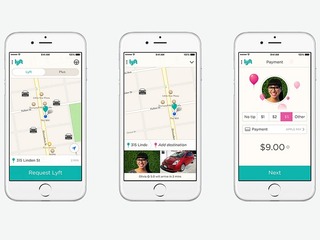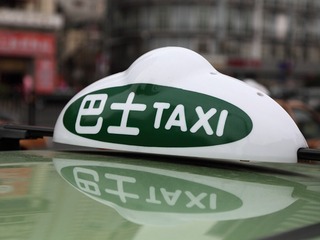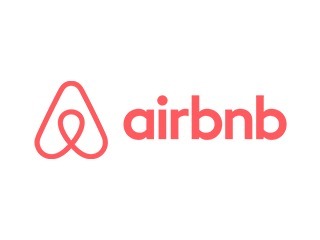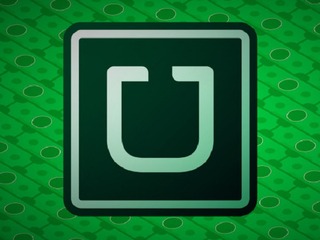The FDA outlines draft guidance on AI for medical devices
The agency also published draft guidance on the use of AI in drug development
Read more...People driving other people around. Taxis, so to speak.
If someone had told you five years ago that, in 2015, a handful of companies would raise a dozen billion dollar funding rounds, completely dominating the tech sector... would you have believed them?
Well, here are the facts—the top 10 companies in the sharing economy by amount of funds raised this year. $4.8 billion: Uber
$4.8 billion: Uber
When it comes to unicorns, Uber takes the sparkly rainbow cake. The global ride-hailing company is the most well-funded in the world, and is today the most highly valued private company with a rumored valuation of $62.5 billion. This year alone, Uber raised nearly $5 billion from investors across four rounds:
Opting out of an initial public offering, Uber instead dipped into investors’ coffers for its quarterly boost of funding to support its ambitious plans for global domination. To stay at the top of the pack, Uber has had to hire aggressively, expand into several major international markets (in both Asia and Europe), face off with stiff competition in all those market, contend with the incumbent taxi market as well as regulations new and old, and finance legal battles against its own drivers in court, who are demanding either the right to unionize or full-blown employee status.
$3.7 billion: Didi Kuaidi
Valued at $15 billion, Didi Kuaidi is Uber’s most formidable opponent and in its most important international market: China. With a total population approaching 1.5 billion and a dozen cities with populations over two million, China is clearly an important market for ride-hailing services.
Though Didi Kuaidi appears to have raised less than Uber, it is focusing on just the Chinese market, not the whole world. Not only that, but it has the benefit of partnering with several of Uber’s worldwide competitors, including Lyft. The battle and potential for consolidation between these services will be important to watch in the coming year. $1.5 billion: Airbnb
$1.5 billion: Airbnb
Half a year after the story first emerged, an SEC filing in December confirmed that Airbnb has raised a $1.5 billion round of funding.
Everyone, it seems, wants a piece of the pie. The round was led by General Atlantic, Hillhouse Capital Group of China, and Tiger Global Management, which collectively purchased about a third of the shares allocated for the round. Other participants included Singapore’s Temasek Holdings, Kleiner Perkins Caufield & Byers, GGV Capital, China Broadband Capital, and Horizon Ventures.
With a $25.5 billion valuation, the home sharing site is now the third most valuable private company in the world. But they're still growing. Not only are there reports that the company has reportedly raised another $100 million round of funding, but sources say the company plans to be profitable next year. $900 million: OlaCabs
$900 million: OlaCabs
Next up on the list is another Uber competitor in another one of Uber’s major international markets—India. Ola is a large cab booking platform based in Mumbai with offices in Bangalore and Delhi.
Ola is a $5 billion unicorn whose investors believe that it can defeat (or at least best) Uber’s efforts in India, a country with a total population over a billion and several growing metropolitan hubs in need of taxi services. The company earlier this month joined the anti-Uber alliance with Didi Kuaidi, Lyft, and GrabTaxi.
$700 million: Yidao Yongche
Who?
The ride-hailing market is so intensely competitive that even unfamiliar names can bring in massive amounts of capital at incredible valuations. Yidao Yongche is a competitor to both Didi Kuaidi in the Chinese market using injections of funds to keep prices low and entice passengers.
It was confirmed in October that Beijing-based technology company LeTV has invested $700 million in return for a 70 percent stake Yidao Yongche. $680 million: Lyft
$680 million: Lyft
Yet another Uber competitor. Though it’s the fourth on the list, this is probably the most familiar of the bunch as Lyft is your primary alternative to Uber in the United States. The company's cofounder John Zimmer said in October that Lyft is currently operating at a $1 billion revenue run rate. However, leaked documents say the company is bleeding money and failing to meet its own expectations around profit.
Hence, the need to raise more money and grow faster!
They’re not done either. Anonymous sources last month said Lyft is looking to raise a new $500 million round of funding at around a $4 billion valuation. (Lyft declined to comment on these figures.) $434 million: WeWork
$434 million: WeWork
Following a $355 million round in December 2014, workspace rental provider WeWork announced at the end of June that it had closed a new $434 million round. The new funding set the company's valuation at $10 billion, meaning it would meet the mark for a proposed redefining of unicorns as those companies valued at $10 billion and above.
Contributors to the round included new investors Fidelity Management and Research Company as well as previous backers J.P. Morgan Investment Management Inc., T. Rowe Price Associates, Inc., clients of the Wellington Management Company, Goldman Sachs Group and Benchmark.
$300 million: Tujia
Tujia is to Airbnb what Didi Kuaidi is to Uber. It’s the vacation rental marketplace for China.
Officially joining the unicorn club, Tujia raised a $300 million round of funding in August valuing it at exactly $1 billion. The round was led by Hong Kong’s All-Stars Investment with participation from The Ascott, the world's largest international serviced residence owner-operator.
Interestingly, HomeAway (another vacation rental site purchased by Expedia) had previously invested in Tujia, so I can’t help but wonder whether Tujia could be on the acquisition radar for Expedia in 2016. $200 million: BlaBlaCar
$200 million: BlaBlaCar
Don’t let the name confuse you. Not quite an Uber competitor, BlaBlaCar connects drivers and passengers to split the cost of traveling long-distance. In other words, it’s ride-sharing from city to city as opposed to ride-sharing within the city limits.
Headquartered in Paris, BlaBlaCar announced in September that it had raised $200 million in new funds from Insight Venture Partners, Lead Edge Capital, and Vostok New Ventures. Like Tujia above, it just barely made the unicorn cut, with rumors of a $1.6 billion valuation.
The company says it serves 20 million users in 19 countries, including most of Europe, Russia, India, and Mexico. It also has plan to expand its offerings to Brazil, Latin American countries, and Asia. $200 million: GrabTaxi
$200 million: GrabTaxi
Last but not least, another Uber competitor. This is the southeast Asia piece of the anti-Uber alliance that also includes Didi Kuaidi in China, OlaCabs in India, and Lyft in the U.S.
Singapore-based GrabTaxi closed a $200 million funding round in July valuing the company at $1.5 billion. The round was led by U.S. hedge fund Coatue Management LLC with participation from existing investors SoftBank Group Corp. and Tiger Global Management LLC.
Today the service operates in over 20 cities across Malaysia, the Philippines, Thailand, Singapore, Vietnam, and Indonesia. Aside from Jakarta, the most populous city in Southeast Asia, GrabTaxi also operates in Bali, an island and province of Indonesia with a population approaching four million.
The agency also published draft guidance on the use of AI in drug development
Read more...The biggest focus areas for AI investing are healthcare and biotech
Read more...It will complete and submit forms, and integrate with state benefit systems
Read more...Startup/Business
Joined Vator on
Airbnb.com is the “Ebay of space.” The online marketplace allows anyone from private residents to commercial properties to rent out their extra space. The reputation-based site allows for user reviews, verification, and online transactions, for which Airbnb takes a commission. As of June, 2009, the San Francisco-based company has listings in over 1062 cities in 76 countries.
Startup/Business
Joined Vator on
Lyft is a peer-to-peer transportation platform that connects passengers who need rides with drivers willing to provide rides using their own personal vehicles.
Startup/Business
Joined Vator on
Uber is a ridesharing service headquartered in San Francisco, United States, which operates in multiple international cities. The company uses a smartphone application to arrange rides between riders and drivers.













